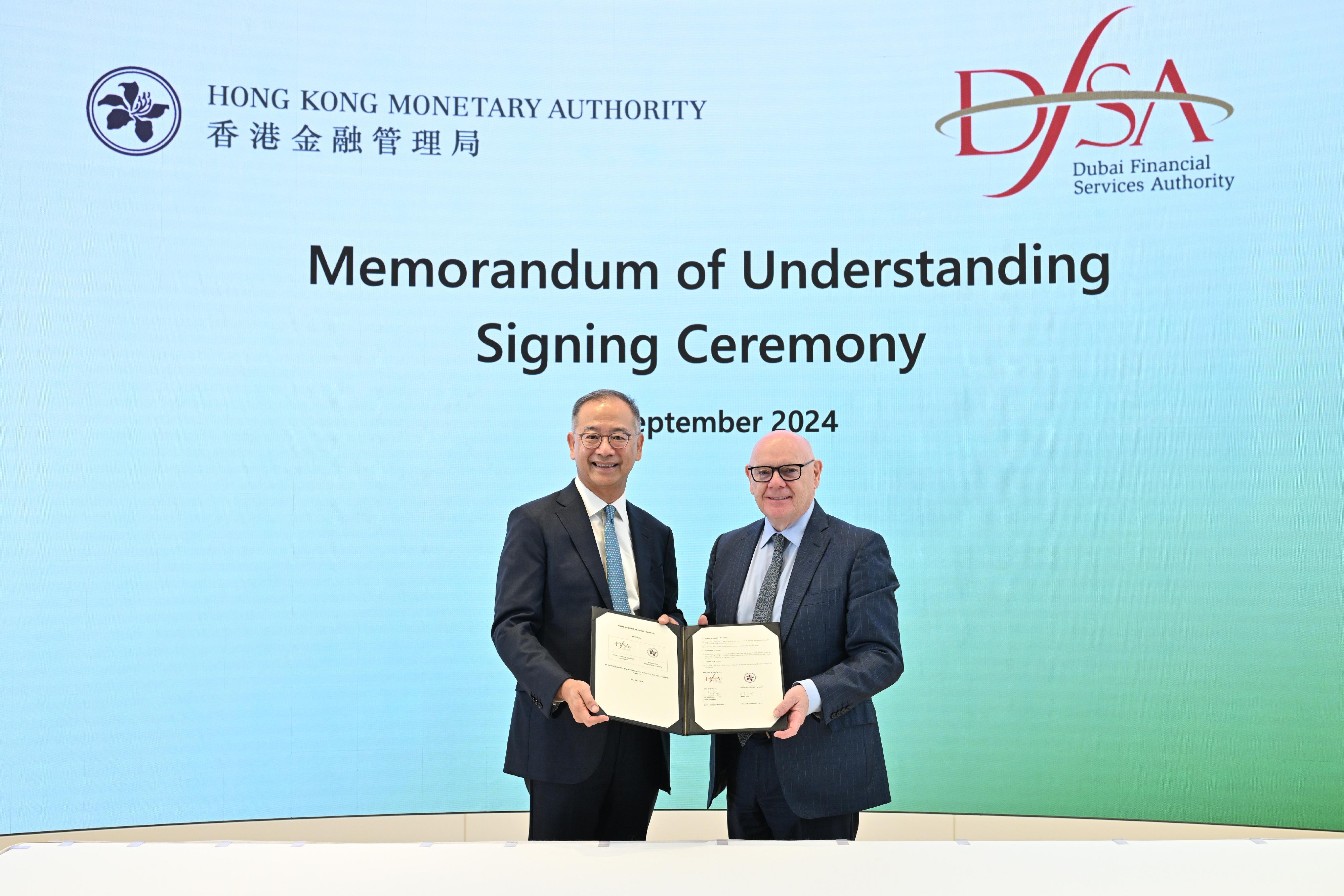
HONG KONG – The mobilization of private capital for green transformation activities in Hong Kong still faces challenges although the Hong Kong Monetary Authority has tried to use the Exchange Fund as catalytic capital to bolster such development, the HKMA chief executive said at a climate finance forum on Monday.
The HKMA – DFSA Joint Climate Finance Conference was organized by the HKMA and the Dubai Financial Services Authority to explore green financing business opportunities arising from the need for climate transition.
“It is extremely difficult to expand private sector equity and debt investment in green transformation activities. The HKMA has tried to use the Exchange Fund as catalytic capital, but the extent to which private capital can be mobilized and the extent to which the entry of private capital can be sustained still have considerable challenges,” Eddie Yue Wai-man said.
READ MORE: HK issues the world's first multi-currency digital green bond
The HKMA chief added that the Hong Kong Special Administrative Region government hopes to facilitate small- and medium-sized enterprises to enter the green bond market through providing funding to issuers or borrowers since SMEs will incur additional costs, knowledge and green audit fees.
According to the Green Bond Report 2024 released last week, as of the end of August, grants of about HK$260 million ($33.4 million) had been approved for 440 green and sustainable debt instruments issued in Hong Kong, involving a total underlying debt issuance of around $120 billion.
The report said that the SAR government has thus far issued green bonds totaling close to the equivalent of HK$220 billion, funding various green projects in the SAR and providing benchmark for potential issuers.
At the conference, Yue noted that there is currently no clear and feasible classification catalog for green transformation.
ALSO READ: New green bond issuance offers investors higher coupon rate return
“The HKMA is cooperating with international organizations and hopes to propose a preliminary green transition framework (prototype) for specific industries, such as energy as well as information and communication technology (ICT) industries, and launch it within the next year,” Yue said.
“It is necessary to negotiate with international organizations to find a guidance path, because it is not only green transformation that needs to be defined, but also the transformation process needs to be specified: how to proceed, and when and what standards must be met,” Yue added.


